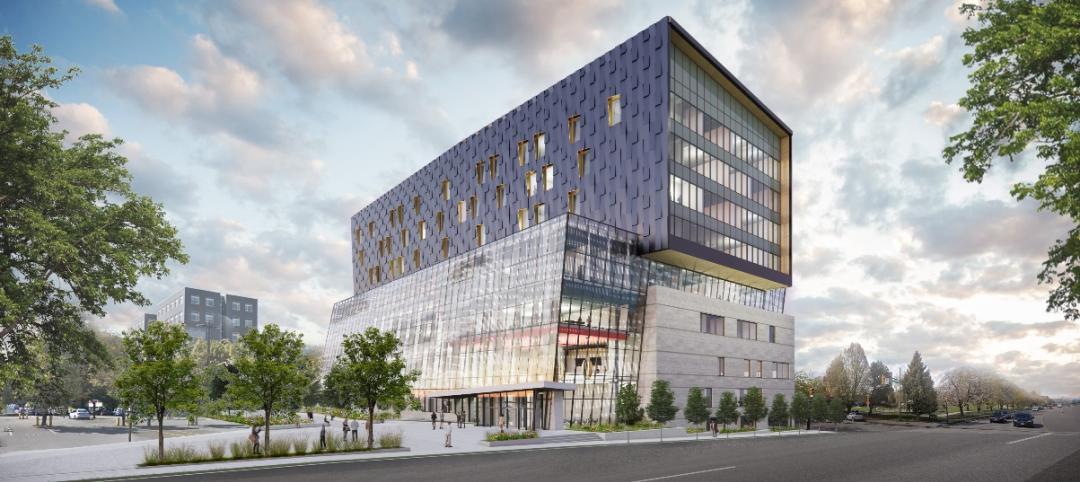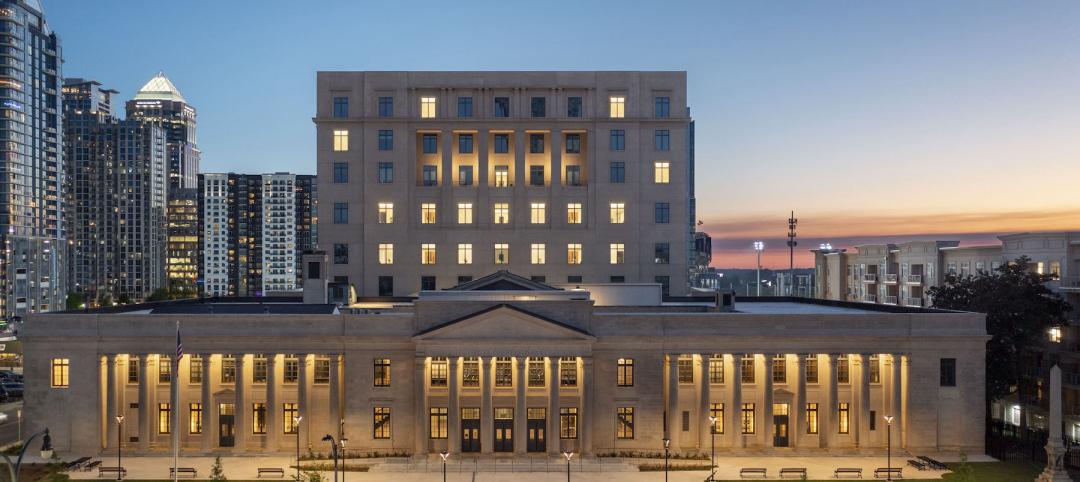The U.S. Department of Energy (DOE) and U.S. Department of Commerce announced selections for three Centers for Building Operations Excellence that will receive a total of $1.3 million to create and deploy programs aimed at training and expanding current and incoming building operators. The centers are part of the Obama administration’s Better Buildings Initiative, which is working to improve the energy efficiency of America’s commercial buildings 20 percent by 2020, with the potential to reduce American business’ energy bills by approximately $40 billion per year.
“Improving energy efficiency in business and manufacturing is critical for helping American businesses keep costs down and stay competitive in the global economy,” said Secretary of Energy Steven Chu. “The first step is ensuring we have well-trained buildings and facilities operators that know how to boost building performance and keep commercial facilities from wasting energy.”
The three Centers for Building Operations Excellence will work with universities, local community and technical colleges, trade associations, and the Energy Department’s national laboratories to build training programs that provide commercial building professionals with the critical skills they need to optimize building efficiency while reducing energy waste and saving money. The DOE and Commerce’s National Institute of Standards and Technologies’ Manufacturing Extension Partnership (NIST MEP) are jointly funding the centers.
“These federal grants are an example of the Obama administration’s commitment to investing in cutting-edge, job-creating technologies that save money and improve energy efficiency as part of an all-of-the above approach to American energy,” said Acting Commerce Secretary Rebecca Blank. “These centers will help ensure that American workers have the skills they need to remain globally competitive in a 21st century economy.”
The Centers for Building Operations Excellence, chosen through a competitive grants process, utilize multi-organization partnerships and support from local and state governments. The selected centers are:
· The Corporation for Manufacturing Excellence in California, partnering with Laney College and the International Union of Operating Engineers Local 39;
· Delaware Valley Industrial Resource Center in Pennsylvania, partnering with Pennsylvania State University, Pennsylvania College of Technology, and Drexel University; and
· New York State Department of Economic Development in New York, partnering with City University of New York and Rochester Institute of Technology.
The Better Buildings Initiative program creates opportunities for current and future facilities staff of all levels to obtain valuable skills that support a clean energy economy. Specifically, the funding announced today will help the three centers develop curricula and pilot training programs for building operators, managers, and energy service providers, focusing on building re-tuning, energy management, and building operations in commercial, industrial, and educational buildings. The training will outline steps building operators can take to reduce energy consumption, save money and drive continuous improvement in a broad range of commercial buildings.
To learn more about the Better Buildings Initiative, visit http://www1.eere.energy.gov/buildings/betterbuildings/. To learn more about NIST MEP’s work to support manufacturers nationwide, visit www.nist.gov/mep.
Related Stories
MFPRO+ New Projects | Aug 10, 2023
Atlanta’s Old Fourth Ward gets a 21-story, 162-unit multifamily residential building
East of downtown Atlanta, a new residential building called Signal House will provide the city with 162 units ranging from one to three bedrooms. Located on the Atlanta BeltLine, a former railway corridor, the 21-story building is part of the latest phase of Ponce City Market, a onetime Sears building and now a mixed-use complex.
Office Buildings | Aug 10, 2023
Bjarke Ingels Group and Skanska to deliver 1550 on the Green, one of the most sustainable buildings in Texas
In downtown Houston, Skanska USA’s 1550 on the Green, a 28-story, 375,000-sf office tower, aims to be one of Texas’ most sustainable buildings. The $225 million project has deployed various sustainable building materials, such as less carbon-intensive cement, to target 60% reduced embodied carbon.
Senior Living Design | Aug 7, 2023
Putting 9 senior living market trends into perspective
Brad Perkins, FAIA, a veteran of more than four decades in the planning and design of senior living communities, looks at where the market is heading in the immediate future.
University Buildings | Aug 7, 2023
Eight-story Vancouver Community College building dedicated to clean energy, electric vehicle education
The Centre for Clean Energy and Automotive Innovation, to be designed by Stantec, will house classrooms, labs, a library and learning center, an Indigenous gathering space, administrative offices, and multiple collaborative learning spaces.
Green | Aug 7, 2023
Rooftop photovoltaic panels credited with propelling solar energy output to record high
Solar provided a record-high 7.3% of U.S. electrical generation in May, “driven in large part by growth in ‘estimated’ small-scale (e.g., rooftop) solar PV whose output increased by 25.6% and accounted for nearly a third (31.9%) of total solar production,” according to a report by the U.S. Energy Information Administration.
Resiliency | Aug 7, 2023
Creative ways cities are seeking to beat urban heat gain
As temperatures in many areas hit record highs this summer, cities around the world are turning to creative solutions to cope with the heat. Here are several creative ways cities are seeking to beat urban heat gain.
Government Buildings | Aug 7, 2023
Nearly $1 billion earmarked for energy efficiency upgrades to federal buildings
The U.S. General Services Administration (GSA) recently announced plans to use $975 million in Inflation Reduction Act funding for energy efficiency and clean energy upgrades to federal buildings across the country. The investment will impact about 40 million sf, or about 20% of GSA’s federal buildings portfolio.
Government Buildings | Aug 2, 2023
A historic courthouse in Charlotte is updated and expanded by Robert A.M. Stern Architects
Robert A.M. Stern Architects’ design retains the original building’s look and presence.
Hotel Facilities | Aug 2, 2023
Top 5 markets for hotel construction
According to the United States Construction Pipeline Trend Report by Lodging Econometrics (LE) for Q2 2023, the five markets with the largest hotel construction pipelines are Dallas with a record-high 184 projects/21,501 rooms, Atlanta with 141 projects/17,993 rooms, Phoenix with 119 projects/16,107 rooms, Nashville with 116 projects/15,346 rooms, and Los Angeles with 112 projects/17,797 rooms.
Market Data | Aug 1, 2023
Nonresidential construction spending increases slightly in June
National nonresidential construction spending increased 0.1% in June, according to an Associated Builders and Contractors analysis of data published today by the U.S. Census Bureau. Spending is up 18% over the past 12 months. On a seasonally adjusted annualized basis, nonresidential spending totaled $1.07 trillion in June.
















